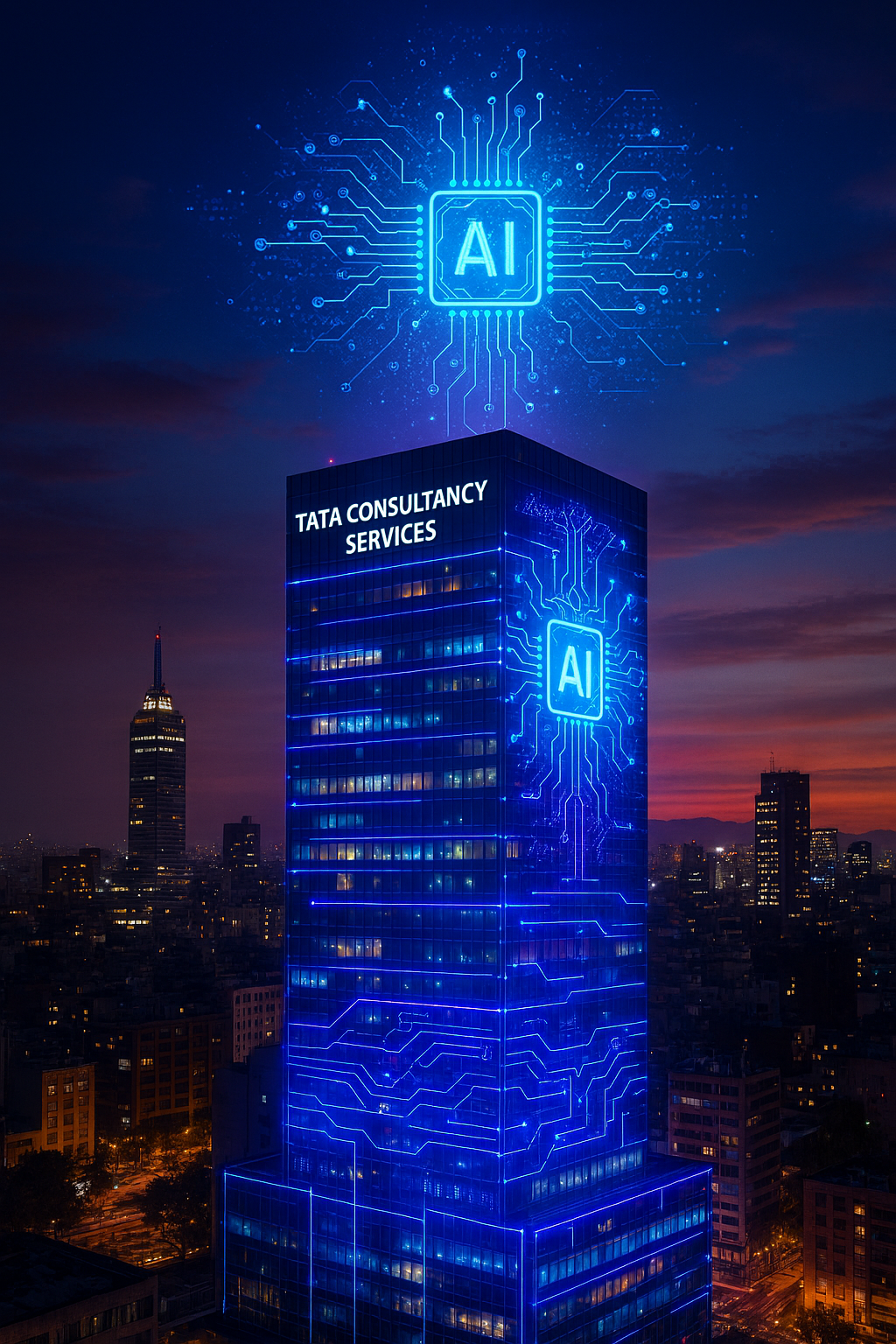Walking through Mexico City’s vibrant streets, where old-world charm meets modern ambition, you can almost feel the city’s pulse quickening. As a tech journalist who’s spent a decade digging into stories from Silicon Valley to Bangalore, I’m thrilled by what’s unfolding here. On August 19, 2025, Tata Consultancy Services (TCS) launched its eighth operations center in Mexico City, a bold new AI-driven hub that’s set to spark a tech revolution in Latin America. With 11,000 workers already calling Mexico home, TCS is gearing up to add thousands more jobs by 2026. This isn’t just a new office—it’s a signal that Mexico’s ready to shine on the global tech stage. Let’s dive into the details, from the jobs on offer to why this matters for the region.
Why TCS and AI Are a Big Deal
I’ve been following TCS since my early reporting days, and their ability to spot trends early is uncanny. Started in 1968 under India’s Tata Group, TCS is now a $30 billion giant with 600,000 employees worldwide. They’ve been pushing AI hard, training over 100,000 workers in things like generative AI and cloud tech.
This new center in Mexico City is their latest chess move. It’s about tapping into Latin America’s growing tech hunger and supporting clients like banks and manufacturers with smart solutions. With U.S. companies increasingly looking to Mexico for cost-effective tech work—a trend called nearshoring—TCS is betting big on the region.
What’s Happening at the New Hub?
Nestled in Mexico City’s bustling core, this facility, opened on August 19, 2025, is more than just cubicles and computers. It’s a tech playground, focusing on AI tools like machine learning, cybersecurity systems to fend off hackers, and IoT for connected devices. TCS already works with over 400 major clients in the region, including big names like Cemex and Banamex.
No public word on the exact dollars involved, but it’s clearly a hefty investment. The center’s up and running, with plans to grow fast through 2025 and 2026. Marcelo Wurmann, TCS’s Latin America boss, put it simply: “Mexico’s a cornerstone for us. This hub will fuel innovation for our clients.” (Insert image: The TCS Mexico City office glowing at night. Alt text: “TCS AI hub in Mexico City lit up against the skyline.”)
Jobs, Jobs, Jobs: What’s Available?
Here’s where it gets exciting. TCS’s Mexico team is already 11,000 strong, built over 22 years. This new hub could add thousands more jobs in 2025, maybe doubling their workforce by 2026. Roles will range from software coders to data wizards, AI experts, cybersecurity gurus, and project leads. These are solid gigs, with good pay and perks like training programs.
Want to apply? Hit up TCS’s career site, submit your resume, and prep for technical tests and interviews. Knowing Python, AWS, or TensorFlow helps, and speaking Spanish and English is a bonus. From my chats with tech insiders, a few tips:
- Share your coding projects—GitHub is your friend.
- Show you’re a team player; TCS values collaboration.
- Grab an AI or cloud certification to stand out.
TCS has been named a top employer in Mexico for 11 years, so expect a supportive vibe. (Insert infographic: Chart of TCS Mexico job roles. Alt text: “Chart showing TCS Mexico jobs: 40% coders, 30% AI experts, 20% security, 10% others.”)
Mexico’s Tech Boom: Why It Matters
This isn’t just TCS’s win—it’s a boost for Mexico. Nearshoring is hot, with U.S. firms flocking to Mexico for cheaper, closer tech solutions. With 130,000 engineering grads each year and cities like Guadalajara buzzing, Mexico’s tech scene is alive. TCS’s hub could spark more startups and better training.
Economically, it’s huge. AI in Latin America’s public sector could hit $7.5 billion by 2033. Tech jobs create ripple effects, supporting roles in schools and shops. An analyst I know said, “TCS is making Mexico a tech hotspot, and the world’s noticing.” It ties into Mexico’s push for smart cities and digital government.
The Tough Stuff: Challenges to Watch
Nothing’s perfect. Mexico’s got talent, but top-tier AI skills are hard to find, so TCS will need to train hard. AI’s tricky too—it creates jobs but can replace them. TCS cut 12,000 roles globally recently, partly due to automation. Plus, Mexico’s data privacy rules could be a headache. But TCS’s focus on upskilling and local ties gives them a shot at cracking these challenges.
How TCS Compares
TCS isn’t alone. Infosys has a hub in Monterrey, serving U.S. clients, and Accenture’s pushing AI across the region. The AI consulting market’s growing fast, and TCS’s massive 600,000-strong workforce gives it muscle. Accenture’s strong in business services, but TCS’s client relationships and nearshoring know-how make this hub a winner.
What’s Next? Jump In!
After years covering tech, I can say this story’s got heart. TCS’s AI hub could make Mexico City a tech star, bringing jobs and ideas. If you’re a coder or just curious, now’s the time—update your resume, apply, or share this post. Think Mexico’s the next big tech hub? Tell me in the comments.

